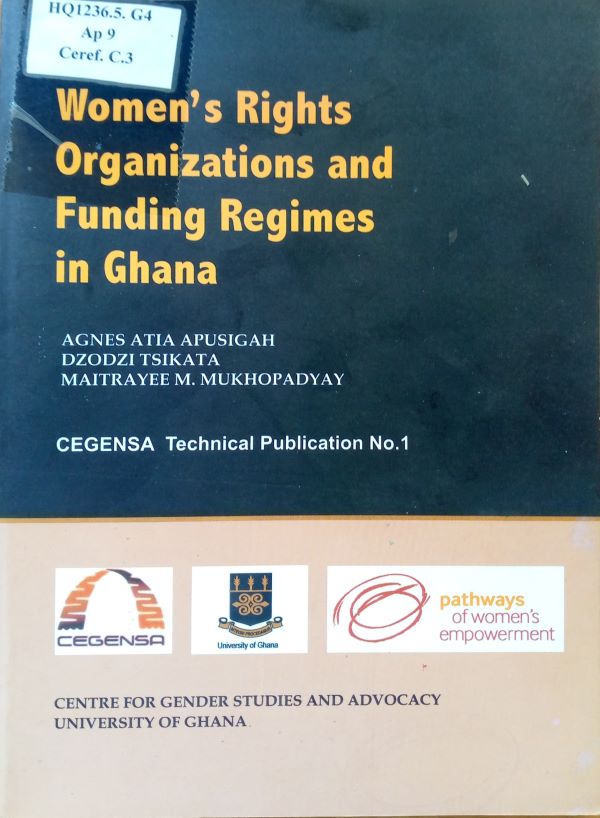Women’s Rights Organisation and Funding Regimes in Ghana
Abstract
Feminist organizing and advocacy has pushed the attainment of women’s rights and gender justice on to the public agenda globally, and women’s empowerment is now a stated priority of governments, multilateral and bilateral agencies in several areas of the world, albeit for different or instrumentalist reasons. The empowerment and autonomy of women and improvement in their political, social, economic and health status is touted as an important end in itself, and as essential for achieving sustainable development. While this has served to ensure legitimacy and support for women’s rights, it has also demanded more and varied work by women’s rights organizations to bring to the fore the systematic and reinforcing patterns of gender inequality, exclusion and disadvantage that women face within their families and households, communities and nation state, within the current context of globalization that has created economic and social dislocation and marginalization for the majority of poor people in the South, especially women. Thus beyond the usual policy focus of governments and donor agencies on increasing the access of girls to education, increasing women’s access economic resources typically through micro-credit, or improving women’s access to and quality of reproductive health, all of which are necessary but insufficient to achieve women’s empowerment by themselves, activist have drawn attention to broader gender concerns about the neo-liberal economic order and their impacts on livelihoods of the poor and women caused by growing unemployment, informalization, immiseration and violence while the global aid architecture has not shifted significantly to ensure attention to the needs of the poor or women. The increasing policy work and engagement by women’s rights groups on global financial institutions, trade regimes, the changing aid architecture, and the third economy of care, as well as more traditional work on the different domains of women’s rights is ensuring that they are resetting the terms of policy and public debate around the human rights of women in many countries around the globe, including in Ghana. In order to do so successfully, they require access to more highly trained and versatile staff members, which is a cost; the strengthening of the networks advocating the empowerment agenda, to support organizing for social justice and to strengthen democratic participation. Above all, women’s rights organization in Ghana and elsewhere in Africa, require new and creative ways by government and their donor partners as well as by private foundations to ensure long term financing for women’s empowerment initiatives. It is my hope that this message, alongside the voices of women’s rights and advocates in Ghana that is captured in the book, will be heeded and acted upon.

